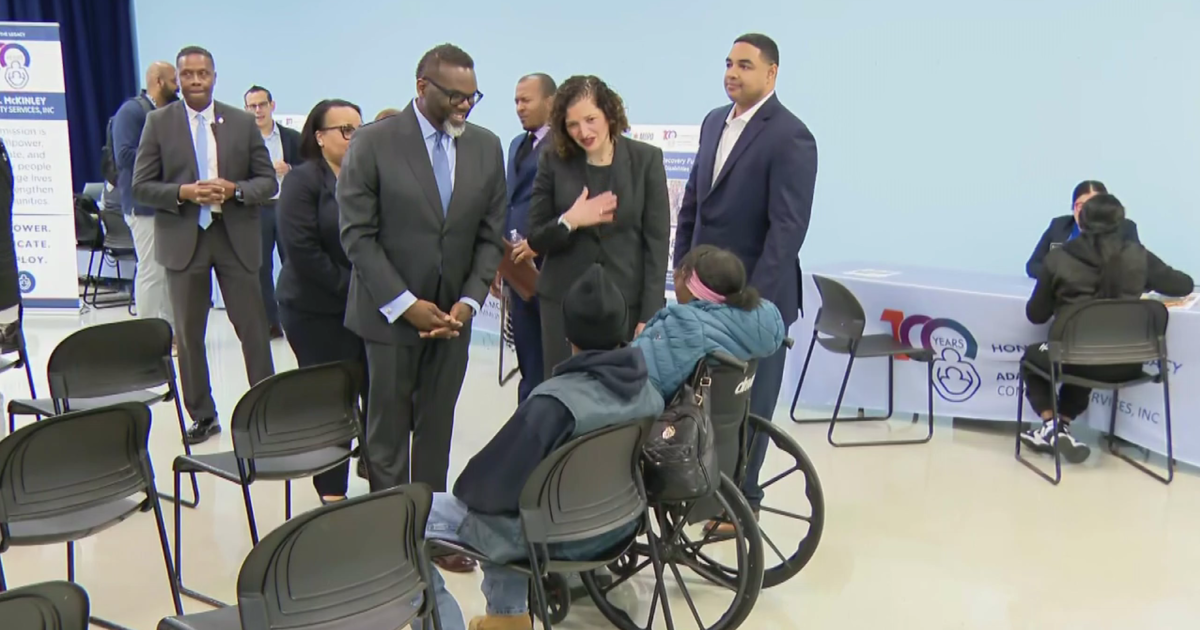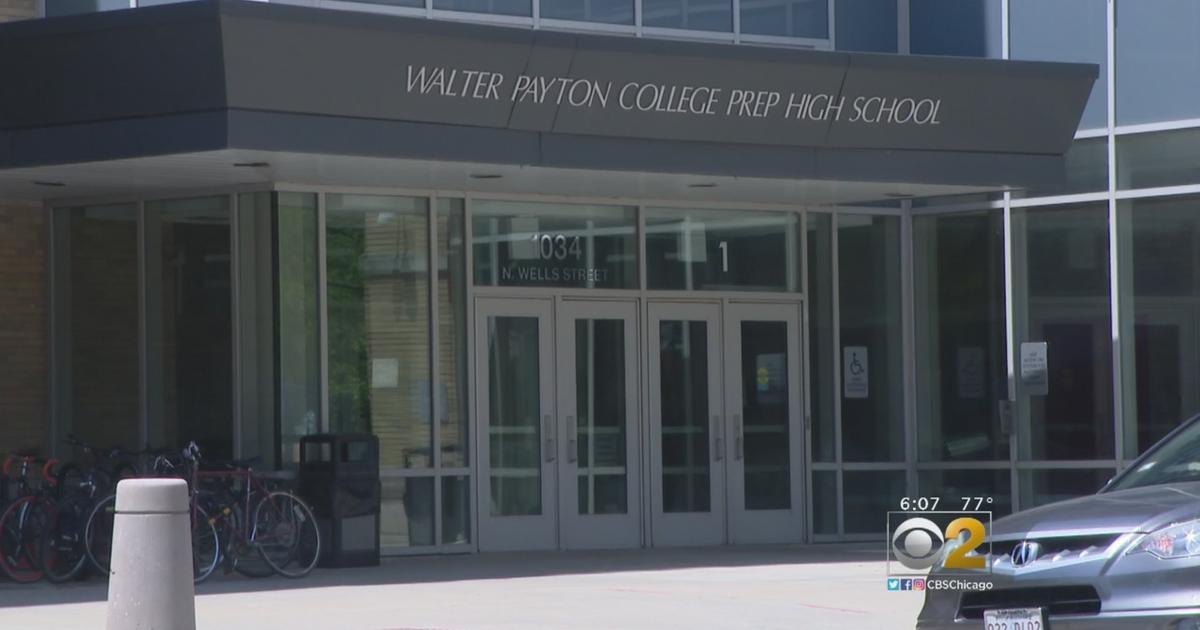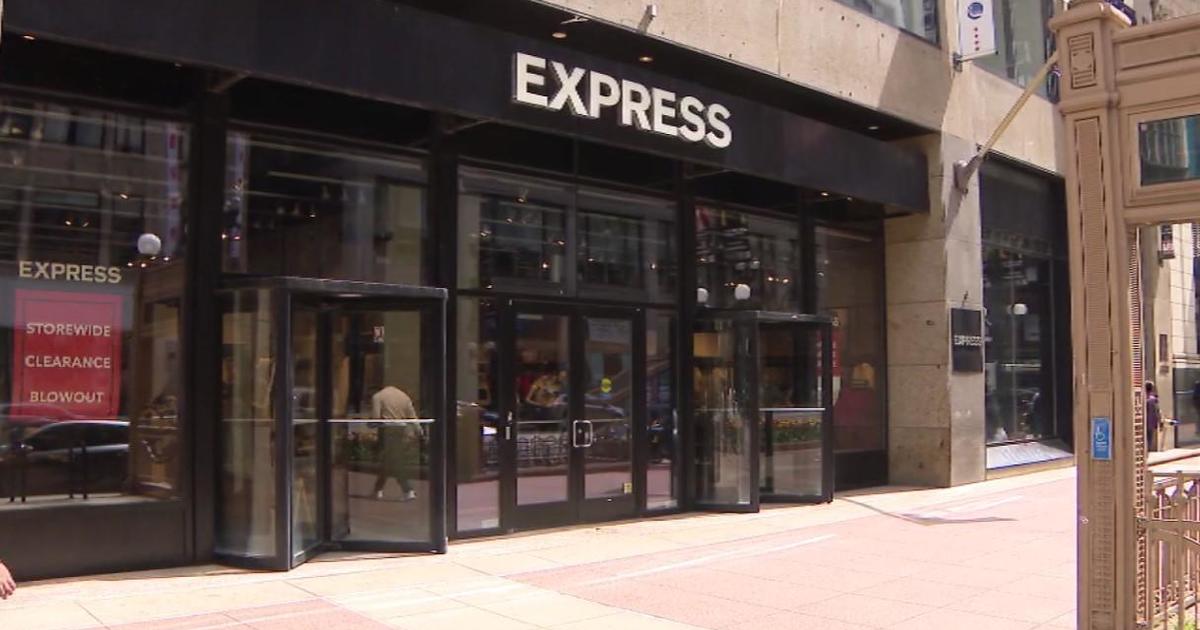Proposal To Allow Sports Betting In Chicago Stalls, Despite Mayor Lightfoot's Support, Amid Aldermen's Worries About Impact On Future Casino
by Todd Feurer, CBS Chicago web producer
CHICAGO (CBS) -- Mayor Lori Lightfoot's push to allow sports betting in Chicago ran into a roadblock on Tuesday, when even some of her closest allies on the City Council accused her administration of trying to rush the proposal through without addressing their concerns about whether sportsbooks would erode revenue from a future Chicago casino.
A proposal originally sponsored by Ald. Walter Burnett (27th) and backed by the mayor would allow sportsbooks to be set up at the city's five major sports stadiums – Guaranteed Rate Field, Soldier Field, the United Center, Wintrust Arena, and Wrigley Field – or at a permanent location within five blocks of those arenas.
Sportsbooks would be limited to 15 betting windows per facility, and the city would collect a 2% tax on gross revenues from sports betting – on top of the 15% state tax and 2% Cook County tax. City officials estimated sports betting in Chicago would generate approximately $20 million to $25 million in annual revenue for the sports books, meaning $400,000 to $500,000 in tax revenue per year for the city.
Despite Lightfoot's support for the ordinance, many aldermen are still wary of forging ahead with allowing sports betting in Chicago, with the mayor's hand-picked City Council Budget Committee chair, Ald. Pat Dowell (3rd) calling the tax revenue estimates "really paltry."
"Even when you add in the licensing fee that these guys are going to have to pay, it seems like peanuts for an industry that is growing," Dowell said at a joint meeting of the city's Zoning and License committees on Tuesday. "I sort of feel like we did when we licensed shared housing and the Ubers and the Lyfts and all of those guys, that we're not getting the full financial benefit of these companies, which started out small, and then they grew."
Another key Lightfoot ally, Ald. Greg Mitchell (7th), said, "I think that we're moving too fast."
"I'm not opposed to the ordinance," he said. "I do think it's too early. There is too many unknowns."
In particular, Mitchell and other aldermen, including Ald. David Moore (17th) and Ald. George Cardenas (12th), the mayor's deputy floor leader, said they want to know what benefits, other than new tax revenue, sportsbooks would bring to the city's minority communities.
"How are our communities, particularly our Black communities, going to participate in sports wagering. And until these questions, until the risks, the proper risk/reward outlook can be shown, I really think we're moving entirely too fast, and the upside is very minimal," Mitchell said.
Cardenas lamented that the proposed ordinance to allow sports betting in Chicago does not include any requirement that sportsbooks include minority owners, allowing the owners of the city's major professional sports teams to exploit the growing sports betting industry in Illinois without minority businesses getting a chance to join in.
"Five folks which are very wealth are going to get even more wealthy without having a direct impact on minorities," Cardenas said.
Aldermen also echoed concerns from some companies that have submitted bids to operate a Chicago casino that legalizing sports betting in Chicago would significantly cut into casino revenue.
According to published reports, casino magnate Neil Bluhm, who is among the bidders for a Chicago casino, has warned that allowing sports betting in Chicago would mean a Chicago casino would lose significant business, costing the city $11 million to $12 million in annual tax revenue, far more than the $400,000 to $500,000 in tax revenue that would be created by the city's proposed 2% tax on sports books.
Lightfoot and her advisors, however, have disputed that opening up sportsbooks in Chicago would have a significant impact on casino revenues.
"While sports betting is in many ways a new frontier, we believe that there is no evidence of significant cannibalization of casino revenues occurring as a result of sports betting legalization," said Connor Brashear, chief of staff and senior fiscal policy analyst for Lightfoot's chief financial officer, Jennie Huang Bennett . "Ultimately, this is new territory, but after a thorough internal analysis and discussions with the city's advisors, we believe this is the best place to start."
Burnett noted that a Chicago casino is still a long way from reality, and that the city shouldn't hesitate to legalize sports betting.
"A bird in the hand is better than two birds in the bush. To be able to get some money right now is a great thing, instead of waiting for a casino that's going to be built, that we've been waiting on to be built for some time," he said. "It just baffles me that some of these casino folks act like they've got the casino already, and I think that's a total disrespect to the communities that they're being considered in."
Brashear said the city commissioned a study by Las Vegas-based Union Gaming, which disputed Bluhm's warnings about sports betting hurting revenue at a Chicago casino.
Union Gaming co-founder Grant Goverston said they analyzed six states that legalized sports betting to determine its impact on traditional casino revenue, and found that some states saw an increase in revenues at casinos, while others saw a decrease.
"There was no rhyme or reason to it," he said.
Goverston said, on average, casino revenues in those states dropped only about 1% after the introduction of sports betting, and he stressed that other factors such as the pandemic also played a role in that small dip in casino revenues.
"Our analysis suggests that there is no discernable … impact on traditional casino revenues when sports betting is introduced. There's no reason to think that Chicago and Illinois should be any different," Goverston said.
Ald. Tom Tunney (44th), who chairs the Zoning Committee, who is among the backers of the sports betting ordinance, said he's been waiting for nearly two decades already for Chicago to get its first casino, all the while seeing the city lose millions in potential revenue to casinos in the suburbs and northwest Indiana.
Tunney said it's time for the city to finally embrace legalized gambling, whether it's sportsbooks, a casino, or both, to bring in badly needed revenue.
"I think the jury is going to be out in terms of how [sports betting] cannibalizes [casino] revenue, but we've been waiting on casino revenues since I've been alderman" he said.
Ald. Brendan Reilly (42nd), a frequent Lightfoot ally, said he could not vote in favor of allowing sports betting in Chicago until he and his colleagues on the City Council have the chance to review that study for themselves, invoking the City Council's rush to approve the much-maligned deal to privatize the city's parking meters in 2009 with minimal analysis.
"I just remember many years ago, when there were a lot of studies flying around about a hyper-controversial public asset we were on the verge of selling, we didn't get a lot of those studies. We just talked about them," Reilly said.
Aldermen also voiced confusion over the mayor's claim on Monday that the 2% tax would be used to cover the city's costs for helping set up sportsbooks in Chicago.
"We bear the responsibility for all of the residual work that's going to be done, any infrastructure work that's required, any regulatory oversight," Lightfoot said Monday at an unrelated news conference.
When Dowell questioned the mayor's staff what those costs would amount to, they said the proposed ordinance does not require the city to cover any infrastructure costs for sportsbooks.
Facing pushback from so many aldermen on the question of the impact of sportsbooks on casino revenue, and confusion over the mayor's mention of city infrastructure costs, Ald. Emma Mitts (37th), who chairs the City Council License Committee, abruptly recessed Tuesday's joint meeting with the Zoning Committee, but did not immediately schedule another hearing on the sports betting ordinance.
Mitts said the proposal needs to be put on hold until the mayor's staff can answer aldermen's concerns. It's unclear if another hearing on the proposal will be scheduled before the next fully City Council meeting on Dec. 15.
Lightfoot's office said talks on the proposal will continue.
"The Mayor supports a City Council ordinance to authorize sportsbook in Chicago as allowed by State law, and engagement on this topic will continue," the mayor's office said in a statement.



